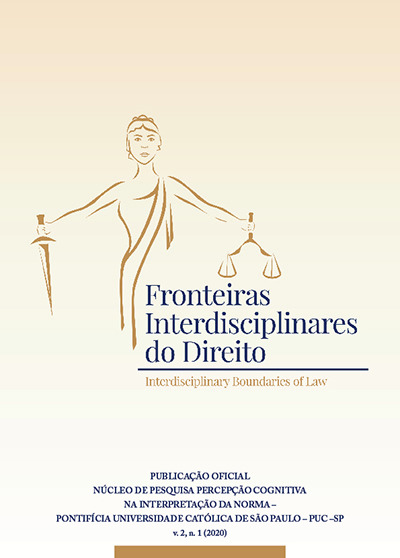INDICATIVOS OU MANDADOS CONSTITUCIONAIS DE CRIMINALIZAÇÃO
Palavras-chave:
Indicativos, Mandado de Criminalização, Constituição, Bem Jurídico PenalResumo
O objetivo do presente estudo é demonstrar o atual cenário jurídico penal quanto ao entendimento das teorias que constituem fundamento para a salvaguarda de interesses e valores constitucionais através da força do direito penal, e a escolha de bens jurídicos merecedores de proteção (teoria do bem jurídico-penal), dentro de uma ordem axiológica constitucional que limita a atuação do Estado, e ao mesmo tempo indica pela necessidade de criminalização de novas condutas, ou de se equilibrar as punições em respeito aos princípios constitucionais, especialmente da proporcionalidade, em suas diversas vertentes, e do princípio da vedação do excesso. Na pesquisa foi utilizado o método dedutivo através da pesquisa bibliográfica da doutrina nacional e internacional, realizando uma análise dos conceitos e das teorias que nascem dentro de uma amplitude supranacional, e vêm sendo transpostas substancialmente para as constituições de diversos países, direcionando a atuação do legislador, bem como, influenciando as tomadas de decisões e soluções de conflitos pelo Poder Judiciário, na salvaguarda de interesses comuns, dos direitos e das garantias fundamentais e dos direitos humanos. Nesta direção apresenta-se o entendimento final pela existência de mandados constitucionais de criminalização, e a inexistência de instrumentos jurídicos hábeis para o controle, sobretudo, a correção de omissões legislativas quanto à criminalização de bens jurídicos necessários de proteção.
Referências
BATISTA, Nilo. Introdução crítica ao direito penal. 12 ed. Rio de Janeiro: Revan, 2011.
BARCELLOS, Ana Paula de. Curso de direito constitucional. 2 ed. Rio de Janeiro: Forense, 2019.
CANOTILHO. José Gomes. Direito constitucional e teoria da constituição. 7 ed. Coimbra. Almedina, 2003.
CUNHA JÚNIOR. Dirley. Curso de direito constitucional. 2 ed. Salvador. Juspodivm, 2008.
FELDENS, Luciano. Direitos fundamentais e direito penal: a constituição penal. 2 ed. Porto Alegre: Livraria do Advogado, 2012.
GONÇALVES, Luis Carlos dos Santos. Mandados expressos de criminalização e proteção dos direitos fundamentais na Constituição brasileira de 1988. Belo Horizonte: Fórum, 2007.
ISHIDA. Valter Kenji. Bem jurídico penal moderno. Salvador: Juspodivm, 2017.
LIMA, Ricardo Alves de Lima. Juiz natural, devido processo pela, contraditório e ampla defesa. In: Direito Penal Constitucional: a (des)construção do sistema penal / coordenação e prefácio Luiz Regis Prado; organização Luís Roberto Gomes, Mário Coimbra. Rio de Janeiro: Forense, 2020.
_____________________. Transcriminalidade e sistema de direito penal europeu. Porto Alegre: Sergio Antonio Fabris Editor, 2012.
MARINHO, Alexandre Araripe; FREITAS, André Guilherme Tavares de. Manual de direito penal. parte geral. 3 ed. São Paulo: RT, 2014.
MARMELSTEIN. George. Curso de direitos fundamentais. São Paulo: Forense, 2018.
MENDES, Gilmar Ferreira; BRANCO. Paulo Gustavo Gonet. Curso de direito constitucional. 12 ed. São Paulo: Saraiva, 2017.
MOURA, Evânio. Mandados de criminalização e proteção jurídica insuficiente no direito penal brasileiro. In. PONTE. Antônio Carlos da; CASTRO. ME; Wellington Clair de. (orgs.) Mandados de criminalização e novas formas de criminalidade. Rio de Janeiro: Lumen Juris. 2017.
OSÓRIO, Fábio Medina. Direito administrativo sancionador. 6 ed. São Paulo: RT, 2019.
PASCHOAL. Janaína Conceição. Constituição, criminalização e direito penal mínimo. São Paulo: RT, 2003.
PESSOA. Luíza Nívea Dias. Análise sobre a constitucionalidade do art. 28 da Lei n. 11.343/06 à luz da teoria do bem jurídico. In ANTUNES. Maria João et al. Direito penal e constituição. Diálogos entre Brasil e Portugal. Porto Alegre: Boutique Jurídica, 2018.
PRADO, Luiz Regis. Bem jurídico-penal e constituição. 8 ed. Rio de Janeiro: Forense, 2019a.
___________. Tratado de Direito Penal Brasileiro. 3 ed. Rio de Janeiro: Forense, 2019b.
___________. Direito Penal do Ambiente. 7 ed. Rio de Janeiro: Forense, 2019c.
RODRIGUES JR., Otávio Luiz. Direito civil contemporâneo. Estatuto epistemológico, constituição e direitos fundamentais. Rio de Janeiro: Forense Universitária, 2018.
ROXIN. Claus. A proteção de bens jurídicos como função do direito penal. 2 ed. Porto Alegre: Livraria do Advogado, 2018.
SARMENTO. Daniel. Revisitando os princípios da proporcionalidade e da razoabilidade. In. Direitos humanos e direitos fundamentais. Diálogos contemporâneos. Salvador: Juspodivm. 2013.
SCHOLLER, Heinrich. O Princípio da proporcionalidade no direito constitucional e administrativo da Alemanha. In: PEIXINHO, Manoel Messias et al. Os princípios da Constituição de 1988. 2 ed. Rio de Janeiro: Lumen Juris, 2006.
SILVA, Luciana Caetano da; BUGALHO, Nelson Roberto; ARMELIN, Priscila Kutne; Proteção penal do ambiente. In: Direito penal constitucional: a (des)construção do sistema penal / coordenação e prefácio Luiz Regis Prado; organização Luís Roberto Gomes, Mário Coimbra. Rio de Janeiro: Forense, 2020.
SOUZA. Luciano Anderson de. Direito penal. parte geral. São Paulo: RT, 2019a.
SOUZA, Luciano Anderson de. Direito penal econômico. São Paulo: RT, 2019b.
TURESSI. Flávio Eduardo. Bens jurídicos coletivos. Proteção penal, fundamentos e limites constitucionais à luz dos mandados de criminalização. Curitiba: Juruá, 2015.


